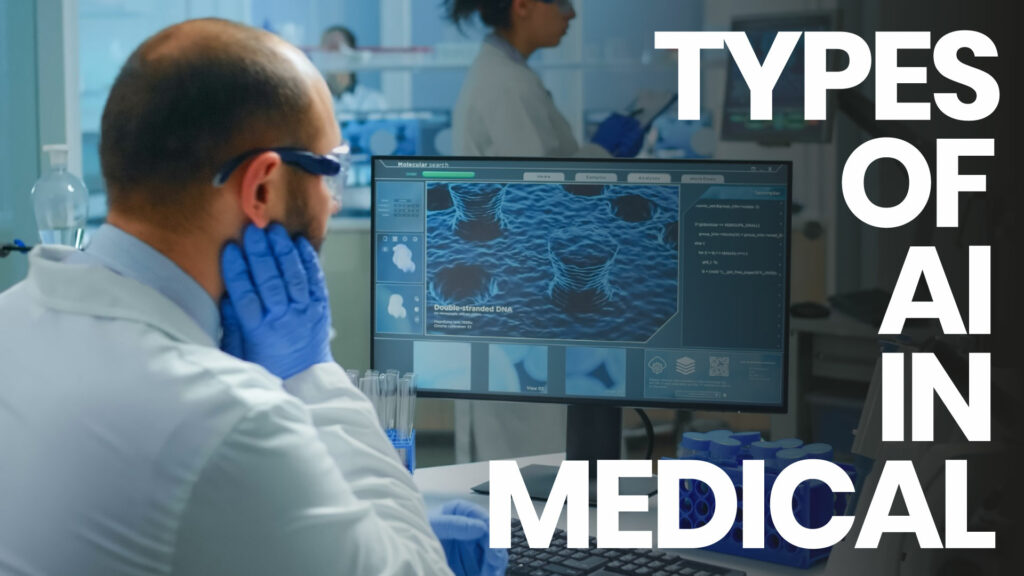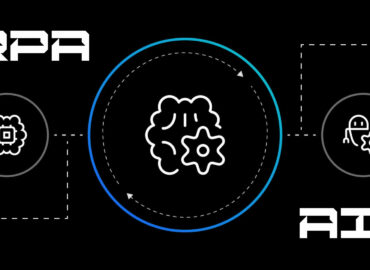AI in Healthcare IT: Improving Patient Care and Management
Introduction
Artificial intelligence has influenced every field of science and contemporary disciplines. Similarly, the medical sciences are revolutionized by utilizing AI. It has improved research as well as diagnosis and treatment. With the incorporation of various algorithms, AI is proving itself better than human technicians. It has great potential to revamp the field of medicine. IBM’s Watson initiated natural language processing in 2011, which gave way to exploring healthcare.
With the advancement of AI, many methods related to traditional treatment will change. Following are some types of AI that will benefit the healthcare system in the long run.

Types of AI in healthcare
AI technology was created to benefit all fields, including business, corporate, manufacturing, etc. Their adaptation in the field of medicine can help not only with treatments but also with communication, documentation, and assistance. Some of the widely used AI algorithms are as follows:
1. Machine Learning
Machine learning is the most common form of AI, which helps in treatment through its automated algorithms. Clinical data is fed to these algorithms and they process it efficiently. This enables precision medicine, which means a patient’s diagnosis can be predicted quickly and accurately to expedite the treatment procedure.
Another machine learning form is “neural learning,” which is more complex. It involves gathering data about a patient’s medical history and anticipating a disease.
“Deep learning” is a more intricate method and serves its function in radio imaging and cancer diagnosis. It helps in detecting any anomaly in human anatomy and provides accurate data in radiomics or image analysis.
2. Natural Learning Processing (NLP)
This AI technology involves recognizing and analyzing speech and text concerning human language. It improves the clinical process by providing close attention to patients. It also correlated different data to provide a more accurate diagnosis and treatment.
3. Robots
Medical science can also benefit from another creation of artificial intelligence, i.e., robots. Mechanical robots can assist in surgical procedures and divide the workload of medical workers. Most medical robots can accurately handle dental procedures like wound stitching and incisions. This provides more precision in operations and saves much time.

AI and patient care
A patient is central in the field of medicine. Introducing artificial intelligence will improve the experience of patients. According to statistics, 83% of people come across poor communication skills when interacting with medical officers. This poor performance can be due to a lack of precision in the data and understanding of the patient’s problem. With AI’s neural learning and deep learning algorithms, as discussed above, this interaction can be greatly improved.
There are several ways in which health care, as well as patient care, can be well managed through AI. Some of these applications include the following:
1. Administration
Manually recording data is a hefty and redundant task. But this record is equally important for patients as well as medical institutes alike. AI automation can effectively record the patient’s medical history and respond in time to speed up the process.
2. Nursing Assistance
Edge computing AI is the most practicable technology in various industries. Naturally, every sector is substituting its services for edge computing for better and more effective solutions. Common examples of edge AI are mobile phones, smart watches, automated vehicles, etc. Some of these industries are as follows:
3. Error Mitigation
Sometimes patients do not take their medication correctly. For example, insulin should be properly taken to improve sugar levels. If there is any error, then an AI router or tool can assess the procedure to hint at falsities.
4. Surgical Assistance
More importantly, AI can help with intricate surgical procedures and increase the precision of operations. Handling tools, making incisions, and inducing radiation can be perfected by incorporating AI. A study found that AI can identify skin cancer more accurately than qualified surgeons. This is because AI can absorb large amounts of data, which helps in comparing various disease patterns.
AI Management in Healthcare
Medicine also has a management aspect, which is equally important as patient care. Data must be preserved, be it medical records or research papers. With AI, data processing has become very convenient and efficient. The automation of data documentation has eased the burden on medical officers. This has not only saved time in tackling mundane tasks but also saved money.
Nonetheless, some ethical challenges like data protection, transparency, accountability, and sustainability must be considered to extract larger benefits from this technology. WHO has prepared an elaborate report and addressed all these management risks.
Conclusion
The future of healthcare with AI is promising. With new advancements, medicine will also accommodate new methods for better patient care and medication. It will improve the healthcare system through advanced research methods and surgical procedures. The emphasis is also put on accessible medical care, reduced costs, and fruitful health improvement. Together with artificial intelligence, medical professionals will be better equipped to provide patient care and deliver an experienced service.







